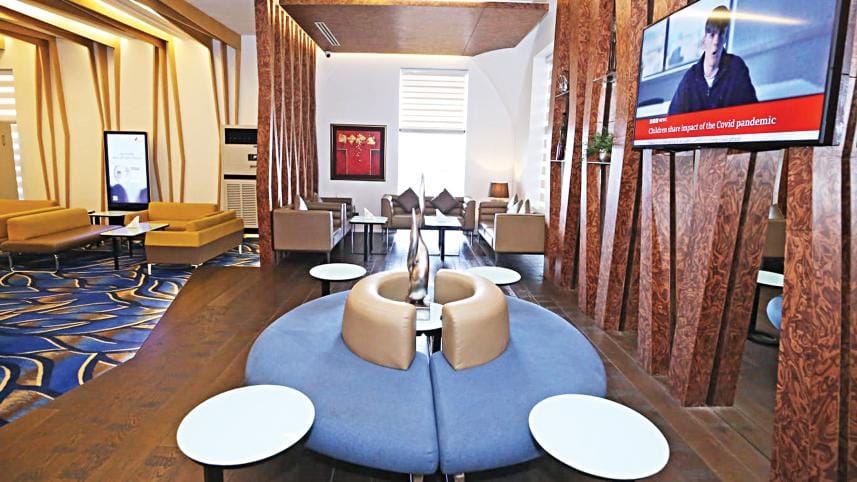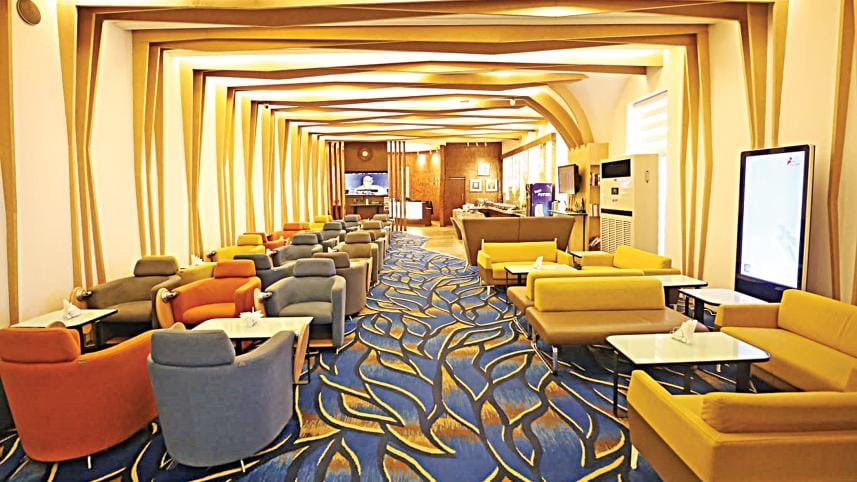Lounge access, loyalty, and lifestyle

Mashrur Arefin,
Managing Director & CEO of City Bank
"In 2024, roughly 12.5 million passengers travelled through Hazrat Shahjalal International Airport, up 7% from 2023."
As Bangladesh's air travel sector expands, banks are stepping up to meet travellers' growing expectations. For City Bank, lounges and premium cards have become central to building loyalty among affluent and aspiring customers. In this conversation with The Daily Star, Mashrur Arefin, Managing Director & CEO of City Bank, explains how the bank is shaping the lounge experience, addressing customer feedback, and aligning its premium offerings with international standards.
The Daily Star(TDS): How do you see air travel in Bangladesh changing over the next five years, and what role will lounges play?
Mashrur Arefin (MA): In 2024, roughly 12.5 million passengers travelled through Hazrat Shahjalal International Airport, up 7% from 2023. According to IATA, Bangladesh's air transport market will continue to grow at around 6% annually until 2028. This means more routes, new airports, and major upgrades like Terminal 3 at HSIA. Airlines will face tougher competition and will need to enhance the overall travel experience.
In that context, lounges become increasingly important. They offer comfort, Wi-Fi, food and beverages, business facilities, and personalised services that transform waiting time into a more enjoyable part of the journey. As the aviation sector matures, lounges will move from being a luxury to an essential part of travel in Bangladesh.

TDS: How many lounges can your cardholders access, and which card types receive free visits?
MA: City Bank cardholders enjoy access to our own lounges in Dhaka and Chattogram, plus more than 1,300 international lounges through Priority Pass. Benefits vary by card. Amex Platinum Reserve and Platinum offer unlimited local access, with global access through Priority Pass and companion privileges. Visa Infinite provides unlimited local entry and eight international visits per year. Amex Gold includes five local visits and three abroad. Our co-branded cards with City Alo, Biman, and Dhaka University offer three to five annual visits, while Amex Corporate cards provide unlimited lounge use. Walk-in guests may enter for a fee, and some airline business-class passengers also qualify.

TDS: What do cardholders say about their lounge experience, and how do you act on feedback?
MA: Customers value the calm environment, comfortable seating, food, Wi-Fi, and attentive staff. Suggestions for improvement often include expanding lounge locations, diversifying menus, offering complimentary alcohol, and adding washrooms or smoking zones.
We take this feedback seriously. It has led us to expand the lounge network, enhance catering, upgrade seating and Wi-Fi, and provide additional staff training. The goal is to deliver consistently high service, even in high-traffic settings.

TDS: How are you making your premium cards comparable to international ones, and what are the challenges in wider adoption?
MA: Our Amex Platinum cards include Priority Pass membership, aligning us with global standards. Partnerships with SIXT, Avis, and Fastrack VIP expand the travel ecosystem, while Tablet Plus gives access to premium boutique hotels. Membership Rewards points can be redeemed globally, adding value for frequent travellers.
The challenges are real. Many Bangladeshis remain cautious about credit cards due to fears of debt or hidden fees. Eligibility criteria also exclude segments like freelancers who lack formal documentation. Meanwhile, financial literacy gaps and cash-based habits slow adoption. Opportunities lie in educating customers, promoting responsible use, and exploring flexible verification methods to reach more aspiring users.

TDS: What new features are on the horizon?
MA: We are introducing a digital Priority Pass, replacing physical cards. We're also experimenting with gamified rewards, such as transaction streak campaigns. On the digital side, Citytouch is being expanded to reduce branch dependency.
However, challenges remain. Many customers prefer cash or branch visits, while others worry about digital security. Overcoming misconceptions around debt traps and fees is essential. With sustained innovation and education, we believe premium banking can reach a much wider audience.




 For all latest news, follow The Daily Star's Google News channel.
For all latest news, follow The Daily Star's Google News channel.
Comments